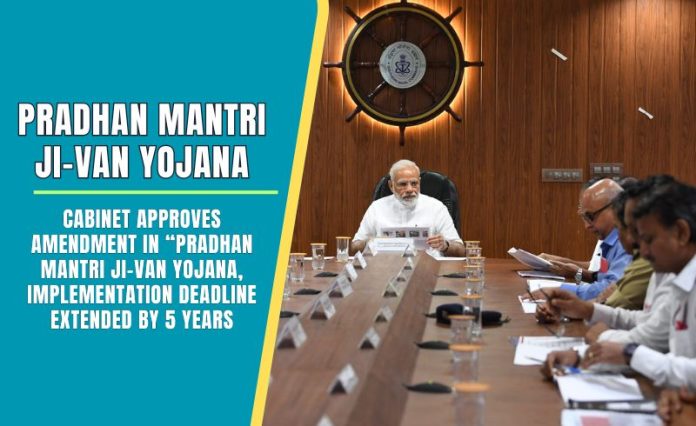The Union Cabinet has approved the revised Pradhan Mantri JI-VAN Yojana to keep pace with the latest developments in the field of biofuels and attract more investments.
Under the revised scheme, the implementation deadline of the scheme has been extended by 5 years i.e. to 2028-29. Its scope includes advanced biofuels made from lignocellulosic feedstock i.e. agricultural and forestry residues, industrial waste, synthesis (syn) gas, algae etc.
After the cabinet meeting, Union Minister Ashwini Vaishnaw said that an additional investment of Rs 1,969 crore has also been approved in this program. “Bolt on” plants and “brownfield projects” will also now be eligible to leverage their experience and improve their viability.
To promote multiple technologies and multiple feedstocks, priority will now be given to proposals involving new technologies and innovations in this sector. The scheme aims to provide remunerative income to farmers for their agricultural residues, avert environmental pollution, generate local employment opportunities and contribute to India’s energy security and self-reliance. It supports the development of advanced biofuel technologies and also promotes the Make in India mission. It is also expected to help India achieve its ambitious target of net zero GHG emissions by 2070.
Also Read: RBI Governor said- banks have freedom to decide interest – Know Details
What is the Prime Minister’s G-One scheme
To achieve the targets of ethanol blend in petrol, the government is also focusing on alternative sources like second generation (2G) ethanol (advanced biofuels). Industrial waste, surplus biomass/agricultural waste etc. can be converted into ethanol using advanced biofuels technology. With the objective of promoting 2G ethanol potential in the country and attracting investments in this sector, “Pradhan Mantri G-One (Jeevan Fasal-Vatavaran Sukol Fasal Residue Nivaran) Yojana” was notified in March 2019 to provide financial assistance to 2G bio-ethanol projects.
Under this scheme, Indian Oil Corporation Limited has set up the first 2G ethanol project in Panipat, Haryana. It was dedicated to the nation by Prime Minister Narendra Modi on 10 August 2022. Similarly, BPCL is setting up 2G commercial projects in Bargarh (Odisha), HPCL Bathinda (Punjab) and NRL Numaligarh (Assam). These projects are almost complete.
Target of ethanol blending
The government is promoting the blending of ethanol in petrol under the Ethanol Blended Petrol (EBP) programme. Under this, public sector oil marketing companies (OMCs) sell petrol blended with ethanol. The blending of ethanol with petrol under the EBP programme exceeded 500 crore liters in Ethanol Supply Year (ESY) 2022-23, with the blend percentage reaching the level of 12.06%. OMCs are moving towards achieving the target of 20% blend by the end of ESY 2025-26.



